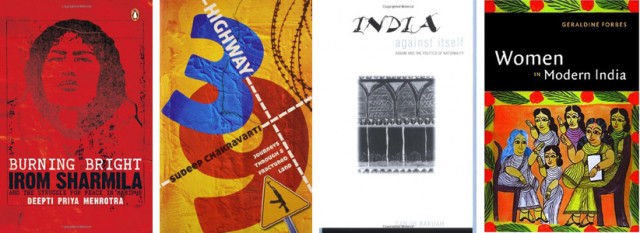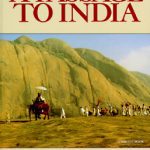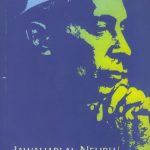Sanjib Baruah, India Against Itself: Assam and the Politics of Nationality. (1999) Written by a political scientist attempting to explain the ethnonationalist (and anti-refugee) movement that sprang up in late 1970s in Assam, one of the seven provinces of Northeast India. The movement lasted for at least two decades. The author departs from other political scientists in taking a longer view of the politics, beginning with the colonial formation of the province of Assam from 1874.
The women missing from that discussion are heart and center of the work of a historically trained journalist writing non-fiction, Sudeep Chakravarti. I found many of the young girls at the center of his travel account, Highway 39: Journeys Through a Fractured Land (2012) simply heart-breaking. The societies described here are in another set of provinces — Nagaland and Manipur — that make up Northeast India.
The police-state described in those stories is encapsulated in the Government of India’s Armed Forces Special Powers Act that is operative in Manipur. A women’s peace movement has grown up against the violence that marks this model of governance there. One woman, Irom Sharmila, has been the symbol of that peace movement and is the subject of a biography by Deepti Priya Mehrotra, Burning Bright: Irom Sharmila and the Struggle for Peace in Manipur (2009). Irom Sharmila went on a fast-unto-death asking for the repeal of the AFSPA since 2001, was arrested, force-fed, released, and has been rearrested again.
A broader history of the women’s struggles of the twentieth century can be found in Geraldine Forbes’ Women in Modern India (1995).
Northeast Review is a website that offers access to current literary and cultural trends in the region in English.




